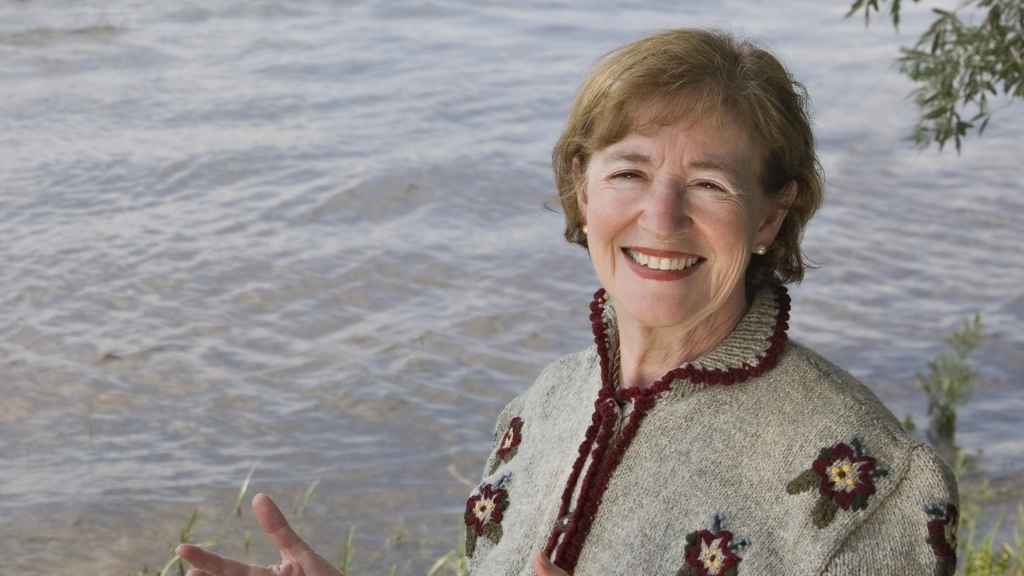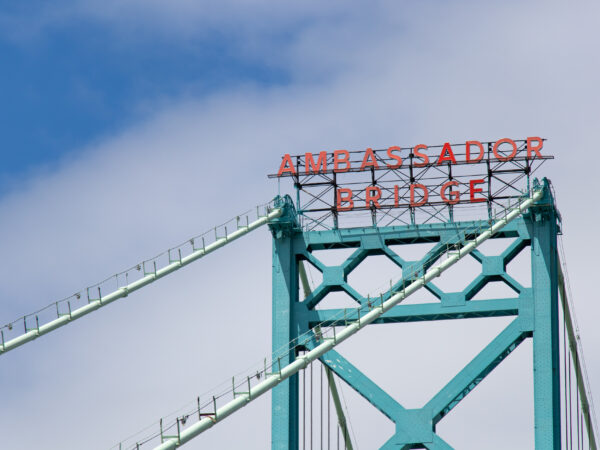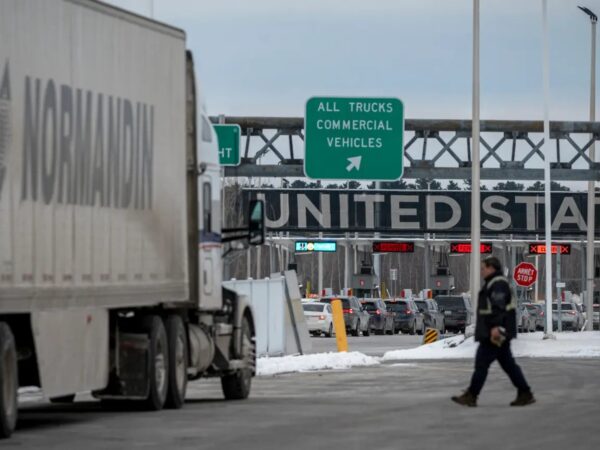
There were two differing visions on how to deal with the global water crisis at the recent United Nations World Water Conference, according to former U.N. water adviser Maude Barlow.
One, would “treat water as a commodity like oil and gas and put it on the open market for sale,” Barlow said. It would allow for privatization of water and related services and treat water as a “futures trading asset.”
The other vision says “water is a public trust and human right and it must be a public service,” said Barlow, who has lobbied for that path for decades.
Barlow is the veteran Canadian and international water rights activist who was instrumental in securing the human right to water declaration by the United Nations in 2010. She was the senior adviser to the international body on water issues and is the co-founder of the Blue Planet Project.
Barlow recently spoke with Great Lakes Now in an interview that in addition to the World Water conference, covered U.S and Canada’s relationship with the Great Lakes and recent tension between the two countries.
She acknowledges that the private sector has a role to play in the future of water related to building infrastructure and other areas where it has expertise. But is adamant that “the decision around who has access to water and water services must be held in public hands.”
At world water conferences, everybody is on the same page about the human right to water, according to Barlow, but said a deep divide exists on how to get there.
She expressed concern that there could be a loss of transparency and democratic decision-making if water becomes a commodity for trade and profit.
The issue of governance and who will make decisions is “absolutely critical,” according to Barlow.
Lack of accountability
Critics of the conference including water experts said the event lacked “accountability, rigor and ambition,” The Guardian reported. They cited “the paucity of scientific rigor and binding agreements will fail to secure the more just, resilient and sustainable water future urgently needed.”
Barlow pushed back on the criticism and said, “first, it happened,” noting that it was the first U.N. conference solely dedicated to water in almost 50 years. And, it provided a platform for alliance building to better prepare the hundreds of organizations in attendance to deal with issues in the future, Barlow said.
It also became evident to Barlow at the conference that an agreement for water is needed similar to the Paris Accord for climate change.
“The world needs to start thinking about water as much as it thinks about the climate crisis and that came out of the U.N. loud and clear,” Barlow told Great Lakes Now.
Documenting Detroit
In 2014 Barlow brought a U.N. Special Rapporteur to Detroit to document the harm caused by drinking water shutoffs. “It was clear that there was environmental racism at work here and there still is,” Barlow said, reflecting back nine years.
Since the U.N. intervention there has been limited incremental progress on affordability and only in 2022 did Detroit implement an assistance plan.
Water rights activists in Detroit and Michigan say there’s more to do and have continued to push for a statewide drinking water affordability law. Advancing the legislation wasn’t an early priority for the Democratic controlled legislature that focused on corporate subsidies to support electric vehicle production in Michigan and lowering taxes.
For those frustrated with the slow pace on water equity, Barlow cautioned that “progress doesn’t happen as quickly as we want” but said values can change with new generations of leadership. “I believe the wonderful groups in Michigan are going to lead the way to this reality,” Barlow said.
Cross-border tension
The Line 5 oil pipeline that traverses the Straits of Mackinac and transports oil to Canada has been a source of tension between Michigan and Canada since Gov. Gretchen Whitmer ordered it shut down in 2020. The pipeline’s operator, Enbridge Energy, is a Canadian company and it defied the order claiming the U.S. federal government is its regulator, not Michigan. Lawsuits followed and are still pending.
Canada, sensing that an important source of energy is at risk, invoked a 1977 treaty with the U.S. to prevent the shut down. The countries have been in discussion on the disagreement but there’s been no resolution. Anti-pipeline activists have been frustrated with President Joe Biden for lack of engagement. Biden met with Canadian Prime Minister Justin Trudeau recently in Ottawa and the joint statement that followed made no mention of Line 5.
Great Lakes Now asked Barlow if Line 5 is a settled issue between the countries.
The issue is still open between U.S. and Canada at the federal level, “only put on the back burner,” Barlow said. As the dispute is in the U.S. federal judicial system, “Biden would not see it as a priority to raise while on a state visit to Canada.”
From her perspective, Line 5 “is a pipeline that needs to be shutdown and the Canadian and Ontario governments are wrong on the issue.” Barlow proposed rerouting the pipeline but over the long term, “Canada needs to get to the place where it’s not dependent on Line 5’s oil,” she said.
Prior to Biden’s trip to Canada a group of Michigan members of Congress expressed concern about what they perceive to be a lack of Canadian investment in restoring and protecting the Great Lakes.
Asked to comment, Barlow took a longer view than the Michigan legislators..
“Both governments need to make commitments to protect the Great Lakes and Canada’s commitment originated with Prime Minister Pierre Trudeau,” Barlow said. Trudeau, the father of the current PM Justin Trudeau, served between 1969 and 1984.
According to Barlow, former Prime Minister Stephen Harper in 2006 began slashing funding for the Great Lakes, “and it’s just beginning to be replenished.”
Canada’s recently announced 2023 budget provides $650 million for the Great Lakes, the St. Lawrence Seaway and other lakes in Canada.
Myth of abundance
Barlow is known to caution about the “myth of abundance” of water in the Great Lakes region of Canada and the U.S. That the supply of water is seemingly infinite. Great Lakes Now asked Barlow if that “myth’ is still relevant.
There’s a tendency for people to grasp the myth of abundance after experiencing it personally, when it’s a crisis, she said. She implored people to understand that we are diverting, polluting, mismanaging and over-extracting our waters.
“Water is not a resource for our convenience, profit and growth. It’s the essential element of life,” Barlow said.
Maude Barlow’s most recent book, “Still Hopeful: Lessons from a Lifetime of Activism”, was featured in a February 2022 Great Lakes Now interview. She lives in Ottawa, Ontario.
Catch more news at Great Lakes Now:
Environmental justice expert questions Michigan’s subsidies for electric vehicles
Hope springs eternal for Michigan legislator who champions drinking water equity
Featured image: Maude Barlow. (Photo courtesy of Council of Canadians)




